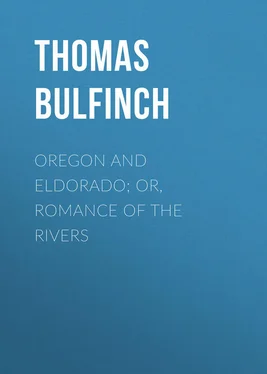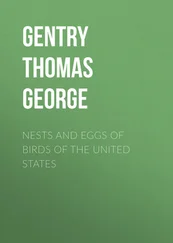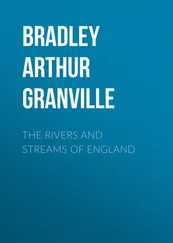Thomas Bulfinch - Oregon and Eldorado; or, Romance of the Rivers
Здесь есть возможность читать онлайн «Thomas Bulfinch - Oregon and Eldorado; or, Romance of the Rivers» — ознакомительный отрывок электронной книги совершенно бесплатно, а после прочтения отрывка купить полную версию. В некоторых случаях можно слушать аудио, скачать через торрент в формате fb2 и присутствует краткое содержание. ISBN: , Жанр: foreign_antique, foreign_prose, на английском языке. Описание произведения, (предисловие) а так же отзывы посетителей доступны на портале библиотеки ЛибКат.
- Название:Oregon and Eldorado; or, Romance of the Rivers
- Автор:
- Жанр:
- Год:неизвестен
- ISBN:http://www.gutenberg.org/ebooks/38774
- Рейтинг книги:3 / 5. Голосов: 1
-
Избранное:Добавить в избранное
- Отзывы:
-
Ваша оценка:
- 60
- 1
- 2
- 3
- 4
- 5
Oregon and Eldorado; or, Romance of the Rivers: краткое содержание, описание и аннотация
Предлагаем к чтению аннотацию, описание, краткое содержание или предисловие (зависит от того, что написал сам автор книги «Oregon and Eldorado; or, Romance of the Rivers»). Если вы не нашли необходимую информацию о книге — напишите в комментариях, мы постараемся отыскать её.
Oregon and Eldorado; or, Romance of the Rivers — читать онлайн ознакомительный отрывок
Ниже представлен текст книги, разбитый по страницам. Система сохранения места последней прочитанной страницы, позволяет с удобством читать онлайн бесплатно книгу «Oregon and Eldorado; or, Romance of the Rivers», без необходимости каждый раз заново искать на чём Вы остановились. Поставьте закладку, и сможете в любой момент перейти на страницу, на которой закончили чтение.
Интервал:
Закладка:
"We arrived at a spot on the gradual descent of the hill, nearly four acres in extent, and covered with small holes. These are the residences of little animals called prairie-dogs, who sit erect near the mouth of the hole, and make a whistling noise, but, when alarmed, take refuge in their holes. In order to bring them out, we poured into one of the holes five barrels of water, without filling it; but we dislodged and caught the owner. After digging down another of the holes for six feet, we found, on running a pole into it, that we had not yet dug half-way to the bottom. We discovered two frogs in the hole; and near it we killed a rattlesnake, which had swallowed a small prairie-dog. We have been told, though we never witnessed the fact, that a sort of lizard and a snake live habitually with these animals.
"The prairie-dog is well named, as it resembles a dog in most particulars, though it has also some points of similarity to the squirrel. The head resembles the squirrel in every respect, except that the ear is shorter. The tail is like that of the ground-squirrel; the toe-nails are long, the fur is fine, and the long hair is gray."
"Of all the animals we have seen, the antelope possesses the most wonderful fleetness. Shy and timorous, they generally repose only on the ridges, which command a view in all directions. Their sight distinguishes the most distant danger; their power of smell defeats the attempt at concealment; and, when alarmed, their swiftness seems more like the flight of birds than the movement of an animal over the ground. Capt. Lewis, after many unsuccessful attempts, succeeded in approaching, undiscovered, a party of seven, which were on an eminence. The only male of the party frequently encircled the summit of the hill, as if to discover if any danger threatened the party. When Capt. Lewis was at the distance of two hundred yards, they became alarmed, and fled. He immediately ran to the spot they had left. A ravine concealed them from him; but the next moment they appeared on a second ridge, at the distance of three miles. He doubted whether they could be the same; but their number, and the direction in which they fled, satisfied him that it was the same party: yet the distance they had made in the time was such as would hardly have been possible to the swiftest racehorse."
"42. – This name we gave to a long island, from the numbers of pelicans which were feeding on it. One of them being killed, we poured into his bag five gallons of water."
NOTE. "The antelopes are becoming very numerous. Their speed exceeds that of any animal I have ever seen. Our hounds can do nothing in giving them the chase: so soon are they left far in the rear, that they do not follow them more than ten or twenty rods before they return, looking ashamed of their defeat. Our hunters occasionally take the antelope by coming upon them by stealth. When they are surprised, they start forward a very small space, then turn, and, with high-lifted heads, stare for a few seconds at the object which has alarmed them, and then, with a half-whistling snuff, bound off, seeming to be as much upon wings as upon feet. They resemble the goat, but are far more beautiful. Though they are of different colors, yet they are generally red, and have a large, fine, prominent eye. Their flesh is good for food, and about equals venison." — Parker's Tour.
"We halted for dinner at a deserted village, which we suppose to have belonged to the Ricaras. It is situated in a low plain on the river, and consists of about eighty lodges, of an octagon form, neatly covered with earth, placed as close to each other as possible, and picketed round. The skin-canoes, mats, buckets, and articles of furniture, found in the lodges, induce us to suppose that it was left in the spring. We found three different kinds of squashes growing in the village.
"Another village, which we reached two days later, was situated on an island, which is three miles long, and covered with fields, in which the Indians raise corn, beans, and potatoes. We found here several Frenchmen living among the Indians, as interpreters or traders. The Indians gave us some corn, beans, and dried squashes; and we gave them a steel mill, with which they were much pleased. We sat conversing with the chiefs some time, during which they treated us to a bread made of corn and beans, also corn and beans boiled, and a large rich bean which they take from the mice of the prairie, who discover and collect it. We gave them some sugar, salt, and a sun-glass."
"The object which seemed to astonish the Indians most was Capt. Clarke's servant, York, – a sturdy negro. They had never seen a human being of that color, and therefore flocked round him to examine the monster. By way of amusement, he told them that he had once been a wild animal, and been caught and tamed by his master, and, to convince them, showed them feats of strength, which, added to his looks, made him more terrible than we wished him to be. At all the villages he was an object of astonishment. The children would follow him constantly, and, if he chanced to turn towards them, would run with great terror."
"We reached the mouth of a creek, to which we gave the name of Stone-Idol Creek; for, on passing up, we discovered, that, a few miles back from the Missouri, there are two stones resembling human figures, and a third like a dog; all which are objects of great veneration among the Ricaras. Their history would adorn the "Metamorphoses" of Ovid. A young man was in love with a girl whose parents refused their consent to the marriage. The youth went out into the fields to mourn his misfortunes: a sympathy of feeling led the girl to the same spot; and the faithful dog would not fail to follow his master. After wandering together, and having nothing but grapes to subsist on, they were at last converted into stone, which, beginning at the feet, gradually invaded the nobler parts, leaving nothing unchanged but a bunch of grapes, which the female holds in her hands to this day. Such is the account given by the Ricara chief, which we had no means of testing, except that we found one part of the story very agreeably confirmed; for on the banks of the creek we found a greater abundance of fine grapes than we had seen elsewhere."
"Great numbers of goats are crossing the river, and directing their course to the westward. We are told that they spend the summer in the plains east of the Missouri, and at this season (October) are returning to the Black Mountains, where they subsist on leaves and shrubbery during the winter, and resume their migrations in the spring. At one place, we saw large flocks of them in the water. They had been gradually driven into the river by the Indians, who now lined the shore so as to prevent their escape, and were firing on them; while boys went into the river, and killed them with sticks. They seemed to have been very successful; for we counted fifty-eight which they had killed. In the evening they made a feast, that lasted till late at night, and caused much noise and merriment.
"The country through which we passed has wider river-bottoms and more timber than those we have been accustomed to see; the hills rising at a distance, and by gradual ascents. We have seen great numbers of elk, deer, goats, and buffaloes, and the usual attendants of these last, – the wolves, which follow their movements, and feed upon those who die by accident, or are too feeble to keep pace with the herd. We also wounded a white bear, and saw some fresh tracks of those animals, which are twice as large as the tracks of a man."
"In the evening, the prairie took fire, either by accident or design, and burned with great fury; the whole plain being enveloped in flames. So rapid was its progress, that a man and a woman were burned to death before they could reach a place of safety. Another man, with his wife and child, were much burned, and several other persons narrowly escaped destruction. Among the rest, a boy of the half-breed escaped unhurt in the midst of the flames. His safety was ascribed by the Indians to the Great Spirit, who had saved him on account of his being white. But a much more natural cause was the presence of mind of his mother, who, seeing no hopes of carrying off her son, threw him on the ground, and, covering him with the fresh hide of a buffalo, escaped herself from the flames. As soon as the fire had passed, she returned, and found him untouched; the skin having prevented the flame from reaching the grass where he lay."
Читать дальшеИнтервал:
Закладка:
Похожие книги на «Oregon and Eldorado; or, Romance of the Rivers»
Представляем Вашему вниманию похожие книги на «Oregon and Eldorado; or, Romance of the Rivers» списком для выбора. Мы отобрали схожую по названию и смыслу литературу в надежде предоставить читателям больше вариантов отыскать новые, интересные, ещё непрочитанные произведения.
Обсуждение, отзывы о книге «Oregon and Eldorado; or, Romance of the Rivers» и просто собственные мнения читателей. Оставьте ваши комментарии, напишите, что Вы думаете о произведении, его смысле или главных героях. Укажите что конкретно понравилось, а что нет, и почему Вы так считаете.












